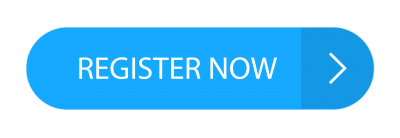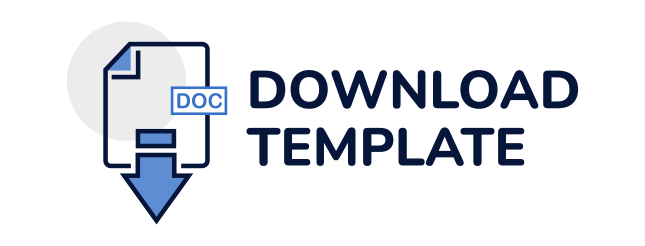ADHD INCLUSION EDUCATION IN EARLY CHILDHOOD
Abstract
What is a child with special needs? and what are the classifications of children with special needs? Children with special needs are children who experience limitations or obstacles, both physically, mentally, intellectually, socially, and emotionally. which affects significantly in the process of growth or development compared to other children of the same age. The classifications of children with special needs include blind, deaf, disabled, disabled, emotional and behavioral disorders, autistic, adhd, gifted, and children with multiple or more than one disorder. According to Hallahan & Kauffahman (2006), children with special needs are defined as children who differ significantly from other children in one or more aspects of development, whether physical, mental, or emotional. They need special education and services to develop optimally. Law No. 20 of 2003 concerning the National Education System (Indonesia) defines children with special needs as children who experience obstacles in growth or have special needs in the learning process, including children who have physical, emotional, mental, social abnormalities, and/or have special intelligence and talent abilities.
Keywords
Full Text:
PDFReferences
Nurussakinah, Thania (2024). Welcoming the Future: A Survey on the Implementation of Inclusive
Education at the Early Childhood Education Level. Murhum: Journal of Early Childhood
Education.5(1). 389-403. DOI: 10.37985/murhum.v5i1.56
Iys, Nur Handayani. (2019) . Inclusive Education for ADHD Children (Attention Deficit
Hyperactifity Disorder). Proceedings of The 4 th Annual Conference on Islamic Early
Childhood Education. 4(1). 291-302
Ibrahim, Rustam. (2013). Mukticultural Education: Definition, Principles, and Relevance to the
Objectives of Islamic Education. 7(1).
Arriani, Farah & Agustiyawati. (2022). Guidelines for the Implementation of Inclusive Education.
Head of the Education Standards, Curriculum and Assessment Agency of the Ministry of
Education, Culture, Research and Technology Anindito Aditomo. Jakarta.
I Made, Sudarma Adiputra, S.Kep., Ns., M.Kes., Prof. dr. Pande, Putu Januraga, S.Ked., M.Kes., &
Dkk. (2021). Getting to know ADHD (Attention Deficit Hyperactifity Disorder). KHD
Production. Bali.
Wahidah, Yuliatul Evita. (2018). Identification and Psychotherapy for ADHD (Attention Deficit
Hyperactivity Disorder) Perspective of Contemporary Islamic Educational Psychology. Millah:
Journal of Religious Studies. 17(2). 1412-0992. DOI: 10.20885/millah.vol17.iss2.art6.
Reynolds, Brad. (2006). Dimensions of impulsive behavior: Personality and behavioral measures.
Personality and Individual Differences. 40(10. 305-315.
Whiteside, Stephen P., Lynam, Donald R. (2001). The Five Factor Model and impulsivity: using a
structural model of personality to understand impulsivity. Personality and Individual
Differences.30. 669-689.
Ardianingsih, Febrita, et al. (2017). The Role of Teachers in Implementing the 2013 Special
Education Curriculum at Special Schools in Sidoarjo. Journal of Education. 2(1). 2527-6891.
Karimzadeh, Mansoureh, et al. (2017). The association between parental mental health and
behavioral disorders in pre-school children. Electron Physician. 9(6). 4497-4502. doi:
19082/4497.
Nasution, Fauziah, et al. (2022). Definition of Education, Special School Education System, and
Types of Special Schools. Journal of Nonformal Education. 3( 2). 2715-2634
Baluyot, P Leda.(2024).Inclusive Classrooms and ADHD: Exploring Collaborative Practices and
Academic Achievement.INTERNATIONAL MULTIDISCIPLINARY JOURNAL OF
RESEARCH FOR INNOVATION, SUSTAINABILITY, AND EXCELLENCE
(IMJRISE).1(5).3028-032X. doi: https://doi.org/10.5281/zenodo.11257023
Ni Luh, Putri. (2015). Early Childhood Inclusive Education with Special Needs. Media Nusa
Creative.
Simamora, Dame Fitri (2022). Inclusive Education Services for Children with Special Needs.
Journal of Social Education and Humanities.1(4).2964-6499
Majiko, Ana. (2017). Children With ADHD Classroom Inclusive Programmes.European
Journal of Social Sciences Studies. 2(1). 2501-8590.
Supena, Asep,. Nuraeni, Siti P,.et al. (2018). Guidelines for the Implementation of Inclusive
Early Childhood Education. Directorate of Early Childhood Education Directorate General of Early
Childhood Education and Community Education Ministry of Education and Culture. Jakarta.
Hayati, Devie Lestari,. Apsari, Nurliana Cipta. (2019). Special Services for Children with
Attention Deficit Hyperactifity Disorder (ADHD) in Inclusive Schools. Research Proceedings
Prasaja. et al. (2022). Demographic Overview of Attention Deficit Hyperactivity Disorder (ADHD)
Children at Yayasan Pembinaaan Anak Cacat (YPAC) Surakarta. PROFESSION (Islamic
Professional): Research Publication Media.19(2).
Nuraeni, P Siti, et al. (2018).Standard Operating Procedures for Early Childhood Education
Inclusive Learning.Directorate of Early Childhood Education Development Directorate General of
Early Childhood Education and Community Education Ministry of Education and Culture.Jakarta.








.png)